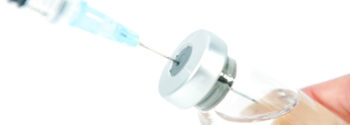High cholesterol levels are harmful to health. Cholesterol is a fatty, wax-like substance naturally found in all of our bodies. It aids in digestion as well as vitamin D and hormone production. When cholesterol levels rise, there is greater chances of having heart disease and heart attack. There are two basic types of cholesterol in the body, namely the low density lipoprotein (bad cholesterol) and high density lipoprotein (good cholesterol). As bad cholesterol accumulates in the arteries, it creates a hard plaque that builds up on the arterial walls. This condition is known as atherosclerosis. Men with atherosclerosis are more likely to experience erectile dysfunction and impotence.
To ensure normal cholesterol levels, the National Cholesterol Education Program recommends regular checkup every 5 years for adults over 20 years old. This is important given the lack of outward symptoms. People with high low density lipoprotein (bad cholesterol) often have no idea of having serious health issue until it’s too late. In men, one of the early signs of high cholesterol level is erectile dysfunction. Fear among men with erection problems will lead to failure in seeking medical advice. As a result, serious problems may arise and even get worse.
During most cholesterol checks, physician will provide tests for your total cholesterol including low density lipoprotein cholesterol, high density lipoprotein cholesterol and triglyceride levels.
What do these types of cholesterol represent and what do the levels mean?
Total cholesterol – This is the total cholesterol level in the bloodstream. Cholesterol level is measured in milliliters (mg) per deciliter (dl) of blood. Less than 200 mg/dl is desirable; 200-239 mg/dl is borderline high and 240 mg/dl and over is considered high. According to a study performed by the University of South Carolina, men with a total cholesterol level of 240 mg/dl and above have double chances of having erectile dysfunction.
Low Density Lipoprotein – Low density lipoprotein (LDL) is also called as bad cholesterol. It builds up in the arteries and forms plaque, as a result hardens arteries. The clot formation in the artery can lead to cardiac arrest or even stroke. Less than 100 mg/dl is ideal, 100-129 mg/dl is near ideal, 130-159 mg/dl is borderline high, and 160-189 mg/dl is high and 189 mg/dl and over is very high.
High Density Lipoprotein – High density lipoprotein (HDL) is also called good cholesterol. High levels of good cholesterol reduces the likelihood of heart attack however low levels may increase the chances of heart disease. HDL works to clear the arteries with cholesterol and carry it back to the liver. A level of 60 mg/dl is good and less than 40 mg/dl is at risk of heart attack.
Triglycerides – Triglyceride is a form of fat in the body. Elevated triglycerides are common in obese people, physically inactive, excessive smoking and drinking alcohol and a diet high in carbohydrates. People with high triglycerides often have a high total cholesterol level, including high bad cholesterol (LDL) and low good cholesterol (HDL) levels. Men with high cholesterol levels more likely to experience erectile dysfunction and impotence even in the future. Therefore, it is necessary to consult a physician to discuss and formulate medical plan in lowering cholesterol levels and regain sexual health.
Foods high in good cholesterol (HDL) include: olive oil, whole grains, high fiber fruit, fatty fish, flax, nuts, chia seeds, avocado, and soy.
Foods high in bad cholesterol (LDL) include: processed vegetable oils, potato chips and other packaged food, cookies and other sugary treats, bacon and other processed meats, alcohol, milk and diary products, and refined grain products.

